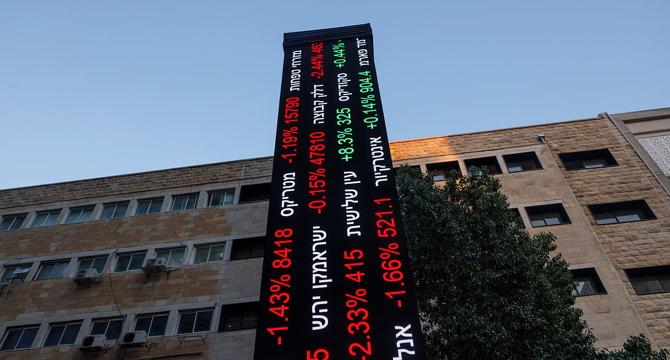Bloomberg Quint
1M
402

Image Credit: Bloomberg Quint
Egypt Leads Mideast Stock Losses As Israel-Iran Conflict Worsens
- Egypt's main stock index experienced significant losses following concerns over a halt in Israeli gas production, leading to fears of fuel shortages.
- Middle Eastern markets, including Israel and Iran, dropped amid escalating conflict, with investors worried about broader implications.
- Israel's stock index rebounded after initial losses, driven by a surge in defense supplier Elbit Systems Ltd.
- Saudi Arabia's markets were somewhat cushioned by gains in Aramco due to higher oil prices.
- The ongoing conflict between Israel and Iran has disrupted hopes for peace and heightened demand for safe-haven assets like gold and the dollar.
- Egypt's EGX 30 Index fell sharply initially, with all 31 listed stocks declining, and the local currency weakening.
- Israel suspended gas supply to Egypt from its largest natural gas field, impacting both countries.
- Saudi Arabia saw most of its stocks decline, though gains in Aramco mitigated some losses.
- Concerns about oil supply chains and prices persist, with WTI crude futures rising significantly.
- Deutsche Bank AG's George Saravelos warned of oil prices potentially exceeding $120 per barrel if Iranian oil supply is disrupted.
- The conflict's impact extended to regions beyond Egypt and Israel, with markets in Kuwait and Qatar also retreating.
- Market performance in the Middle East has been challenging this year, influenced by oil price volatility, geopolitical uncertainty, and fiscal issues.
- The conflict between Israel and Iran has escalated into open warfare, affecting longstanding enmity between the two nations.
- The cancellation of nuclear talks between Iran and the US has added further complexity to the situation.
- The instability in the region has dashed hopes for peace and stability, resulting in a shift in investment sentiment.
- The rise in oil prices following the conflict reflects concerns about potential disruptions to global oil supply chains.
Read Full Article
24 Likes
For uninterrupted reading, download the app